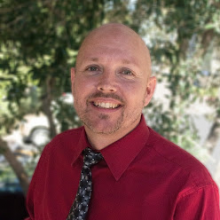Creating Community Without the Classroom: Lessons from a Year of Remote Learning
Concurrent Session 9
Brief Abstract
After a year of remote learning, how have instructors built a sense of community even without face-to-face interaction? This panel will bring together experts in instructional design and pedagogy to discuss how inquiry-based discussion can foster peer-to-peer interaction, help students formulate inquiries, and create community even in an online context.
Presenters



Extended Abstract
Over the past year, online learning has become a necessity at many institutions where it was previously a “nice to have.” The sudden shift to remote courses last spring has sparked critical questions about how to ensure that the online experience is as engaging and fulfilling for students as in-person classes. Is it possible to foster the same spirit of inquiry and camaraderie in an online context?
For many colleges and universities that already have deep experience with online coursework, COVID-19 posed another type of challenge: how to meet the needs of students who often juggled work or family commitments along with their studies, and now had to grapple with the economic and personal impacts of the pandemic. How can the broader community of faculty, instructional designers, and administrators learn from those institutions’ experience building community in remote classes?
This panel will feature insights from teaching and learning leaders at National University, University of Phoenix, and Rio Salado College, three institutions that have taken on this challenge by implementing new approaches to class discussion.
A robust body of research indicates that quality online discussion can lead to better discussion quality and interaction, greater faculty satisfaction, and improved course outcomes. Pedagogy that supports intrinsic student motivation—by supporting robust peer-to-peer interaction, asking students to formulate and pose inquiries, and encouraging them to assume a kind of teaching role with peers—can be especially powerful.
At National University, Phoenix, and Rio Salado, instructors used an inquiry-based discussion tool, powered by artificial intelligence, with the aim of boosting engagement in online classes. What they found was that this approach didn’t just improve students’ participation. It also enabled them to build meaningful and engaged communities that kept learning going even outside the context of specific assignments. The discussion platform’s instant feedback tools to help students edit their contributions in real time, as well as its ability to encourage students to cite sources and ask deeper questions, led to deeper engagement in discussion -- and, in turn, a sense of understanding and respect between students who were able to understand and reflect on one another’s viewpoints.
Participants at the panel will learn about the challenges that National and Rio Salado have faced over the past year and the way that new technologies have helped them to both respond to students’ needs during a challenging year, and encourage the creation of new and enriching communities through discussion.



